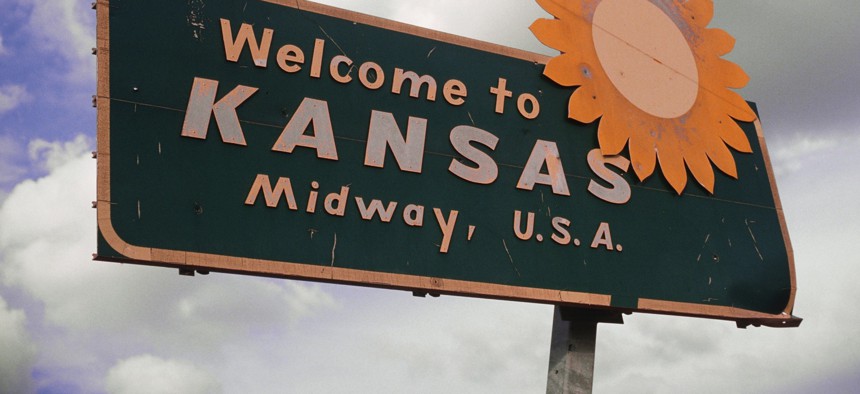Kansas Gets Ready to Dump Young Voters From Suspended List; Oregon’s Scary Bridge Report

Joseph Sohm / Shutterstock.com

Connecting state and local government leaders
Also: Religious loophole for Vermont parents and an "outdoor refreshment" zone for Toledo?
Here’s some of what we’ve been reading this weekend …
WICHITA, Kansas: Thousands of young and unaffiliated voters will be removed from Kansas state voter rolls after being put on a list of nearly 37,000 suspended voters who did not meet requirements, including proving citizenship. As The Wichita Eagle reports:
An Eagle analysis shows that more than 40 percent of people on the state’s suspended voter list are under 30.
More than half are unaffiliated with a party, while 18 percent are listed as Democrats and 22 percent are listed as Republicans.
Since a proof of citizenship law championed by [Secretary of State Kris] Kobach went into effect in 2013, more than 16 percent of people who have tried to register to vote have been placed on the suspended voter list.
The list had grown to 36,674 people by this month – up from 27,131 in October last year.

PORTLAND, Oregon: Here’s another reminder that the Beaver State is woefully ill-prepared for a seriously destructive megaquake. New data from the Oregon Department of Transportation about the seismic readiness of critical bridge infrastructure paints a dismal picture of what’s to come, whenever the next 9.0 magnitude Cascadia megathrust quake strikes. According to Oregon Public Broadcasting:
Of 1,232 lifeline structures ODOT identified, 713 bridges are considered seismically vulnerable or potentially seismically vulnerable. That’s nearly 60 percent of state-identified lifeline bridges likely to collapse or be potentially taken out of use after a quake.
The criteria used to evaluate bridges includes age of the bridge, type of construction, and whether seismic retrofits had been completed.
The map reveals something that has been abundantly obvious to state bridge engineers for decades—more than half of Oregon’s 2,800 state bridges were built before 1970 and have no seismic design of any kind.
The data doesn’t include bridges under local control. [Oregon Public Broadcasting]
BURLINGTON, Vermont: The Green Mountain State is among the least religious states in the United States, but parents who want to seek a vaccination exemption for their kids may have to embrace religious convictions, at least on paper. As the Burlington Free Press reports, “Vermont earlier this year became the first state to remove a philosophical exemption allowing parents to skip the immunizations required to enroll in school but keep the religious exemption in place.” But they won’t have to prove a religious affiliation to use the exemption, only simply check a box that says “religious.” [Burlington Free Press]
TOLEDO, Ohio: For most local governments, rules about alcohol consumption are usually meant prevent imbibing involving open containers in public spaces. But thanks to a new Ohio state law on “outdoor refreshment areas,” a 10-block area in Toledo could be green-lighted for consumption of alcohol openly on streets and sidewalks, The Blade reports:
The new state law allows cities with populations of more than 35,000 to create one entertainment district, or outdoor refreshment area, where people may legally walk outside with open containers of alcohol. Cities with more than 50,000 residents may create two areas. In larger cities, the districts could not be larger than half a square mile.
The Toledo City Council would need to approve such a special district. [Toledo Blade]
TEMPE, Arizona: Leaders in this Phoenix-area city passed “one of the strictest distracted-driving ordinances” in the Grand Canyon State last week, according to The Arizona Republic. But interestingly, the new measure doesn’t ban phone use by drivers, who instead, the newspaper reports, “could be fined if police catch them swerving within their lane or displaying other types of erratic driving with a phone in their hand.” Some members of the City Council voted against the measure, saying they preferred that the state pass legislation on distracted driving, but bills introduced on the subject have been shelved each year since 2007. [The Arizona Republic]
Michael Grass is Executive Editor of Government Executive’s Route Fifty.

NEXT STORY: Colorado Battle Over Local Control of Oil and Gas Drilling Far From Over





